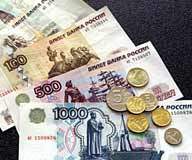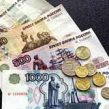
QUARRELS IN THE GOVERNMENT FUELLED BY INFLATION AND INTRIGUE
Publication: Eurasia Daily Monitor Volume: 3 Issue: 54
By:

The last two weeks produced many unusually loud and disagreeable exchanges in the Russian government. Prime Minister Mikhail Fradkov even questioned the “professional competence” of his ministers to perform their duties. The main topic in these bureaucratic dramas played in front of TV cameras was inflation, which reached 4.1% in the first two months of 2006 while the target figure for the whole year was 9%. President Vladimir Putin firmly demanded immediate anti-inflationary measures, but the preliminary figures for March give the quarterly rate of 5.2% and the annual forecast of no less than 11% (Vedomosti, March 15; Nezavisimaya gazeta, March 13). Political attention is driven by public concerns where, according to opinion polls, price growth is on the top of the list with 71%, followed by poverty (55%) and unemployment (36%). The sum total of these concerns is the 70% disapproval rating for the government’s economic course (Levada Center, March 3).
There is little disagreement among experts about the driving forces that generate the inflationary pressure: the supply of money is far greater than the demand, while the state continues to pump cheap “petro-rubles” into an economy that is unable to digest them. As Yevgeny Gavrilenkov pointed out, the declining economic growth of 5.5-6.0% was accompanied by a 25-30% increase in budget expenditures; a combination guaranteeing high inflation (Gazeta.ru, March 15).
Only Finance Minister Alexei Kudrin dared to suggest a radical cut in government spending so that the budget would be balanced without the additional income from energy exports (Vedomosti, February 28). His fiscal logic was solid but grossly incorrect politically and for that reason he was clearly singled out by Fradkov as the best candidate for allocating the blame for the stubborn inflation. Kudrin, however, had no interest in being the scapegoat and took an extended sick leave while implicitly emphasizing his key role in connecting Russia to the G-8 finance ministers’ caucus. This valuable function makes him “untouchable,” so Fradkov had to take a softer tone at the latest meeting of the government and accept the flimsy explanation that a jump in the world price of sugar was the key cause of inflation (Kommersant, March 13). In fact, only Arkady Dvorkovich, an expert from the presidential administration, argued for a realistic correction of the target figure; the rest of the government easily reached a consensus that inflation could be kept under control (Vremya novostei, March 16).
The somewhat theatrical nature of the “battle against inflation” is illustrated by the parallel discussion on managing the Stabilization Fund that has also heated up to a scandalous level. Launched in 2003 as a means of “sterilizing” the enormous inflow of oil income, the Fund has accumulated some $50 billion and so attracts the increasing attention of populist “spenders” (Lenta.ru, March 15). According to the statute, it can be used only for repaying external debt ahead of schedule, but this avenue will quite soon come to a natural end. Some experts in Fradkov’s cabinet have suggested that keeping these funds in foreign bonds is “unpatriotic,” while investing them in high-profit domestic obligations, such as Gazprom shares, would make perfect sense. Andrei Illarionov, who initiated the creation of the fund, argues that any attempt to distribute this money would only add fuel to inflation, while the Moscow stock market, with 85% growth in 2005, is already overheated (Ekho Moskvy, March 17). There is certainly a huge need for investing in basic infrastructure, but the newly created Investment Fund still does not have any serious projects in its portfolio that are worth more than $3 billion (Gazeta.ru, March 17).
The third simultaneously escalating quarrel in the government involves the so-called national projects announced by Putin last autumn. Dmitry Medvedev, who was made deputy prime minister responsible for their implementation, in an outburst of administrative rage, called them “a national shame” (Kommersant, March 7). He had obviously expected to make them into a useful PR-exercise with priority coverage on state-controlled TV and even a special website (Gazeta.ru, March 17). However, inflated public expectations have already been disappointed by bureaucratic procrastination and multi-layered corruption that eats into the generously allocated presidential funds. The failure of this initiative has been particularly evident in the monolithic resistance of the apparatus to the attempt to introduce elements of project planning, so that the “national projects” have been reduced to simply additional channels for distributing money through the presidential “vertical power structure” (Expert, March 6).
What comes out of all these heated debates and incompatible campaigns is the prevalence of petty political intrigues over common economic sense. Russia is certainly facing serious economic problems, and high inflation is merely a symptom of low investment activity caused by the inefficiency of the steadily strengthening state control over key industries. These problems are left unaddressed, as Fradkov is seeking to show that he is the real head of the government and not just a hapless caretaker, while Medvedev wants to demonstrate that he has sufficient managerial skills for a prime minister and Kudrin tries to prove that he is indeed irreplaceable. The short-termism of these parochial agendas stands in sharp contrast with the desire to forge an ideology of “Putinism” that should carry this regime through the electoral transition of 2007-2008 (Gazeta.ru, March 16). Vladislav Surkov, deputy head of the presidential administration, is currently leading the ideological work, but his efforts stumble over the irreducible irregularities in the economic foundation. The policies of expanding state control, even if popular among large segments of the electorate, cannot find any conceptual justification that would stand the elementary test of common economic sense (Kommersant, March 1). Squabbles in the government testify to the diminishing political returns from distributing the oil rent among the legion of greedy bureaucrats, but Putin’s regime knows no other purpose for its existence.




